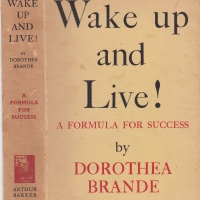Today I spoke at a study group on the topic of A Ballad of a Thin Man by Bob Dylan. Here’s some of what I said:
 The album Highway 61 Revisited was the first album of Bob Dylan’s that really made me sit up and take notice. The songs here were protest songs but were not overtly about unjust war, human rights or inequality.
The album Highway 61 Revisited was the first album of Bob Dylan’s that really made me sit up and take notice. The songs here were protest songs but were not overtly about unjust war, human rights or inequality.
This was a singer giving expression to his feelings in a manner I had not heard before. Even though his words are often obtuse, caustic and surreal there is, nevertheless, an unmistakable tone of someone who is not merely adopting a fashionably oppositional standpoint but stating something real, exemplifying an affinity for the power of language; what David Bowie (in Song For Bob Dylan) called “words of truthful vengeance”.
Like all great writers and artists, he urges you to see beyond the narrow confines of your own world. This form of direct communication through art is hard to explain to others. A poem, a painting or a novel can move us in ways that can often only be articulated in a formal, academic manner. Reducing emotional feelings to factual statements is satisfying on an intellectual level but somehow fails to capture the emotional impact.
This can help explain why after all the books and articles that have been written about Bob Dylan, he still remains an enigma. This is all the more remarkable in the age of the Internet where we are overwhelmed by information and analysis.
There is still no simple answer to the question: ‘Who Is Bob Dylan?’
NOT DYLAN – actors from I’m Not There – Todd Haynes (2007)
Some, like Joni Mitchell for example, have said that Dylan’s unique skill is that he wears a mask that he never lets slip.
Todd Haynes, the director of the 2007 movie ‘I’m Not There’ has noted that people want absolutes and answers but these are things Dylan will never provide. He said “Dylan is difficult – mysterious, evasive and frustrating – and it only makes you identify with him all the more as he skirts identity”.
Haynes attempted to reflect this in his movie by having different actors, male and female, play the various facets and ages of Dylan’s life. It’s an original idea which makes for an entertaining film but, ironically, seems only to increase the mystique.
When Dylan first arrived on the music scene he was hailed as a hobo hero in the Woody Guthrie tradition but, although his was the voice of protest, he always stayed aloof from political groups or other good causes.
When at Newport Festival in 1965, he played a 15 minute set of three electric rock songs, this was seen as a betrayal to the purity and intimacy of traditional folk music. The prophet had become a pariah – turning him from Jesus to Judas.
It wasn’t just his music that was different. His relationship with the media also changed radically.
He began to write songs that reflected an animosity and hostility towards those who dared criticize him. Positively 4th Street is another song in this mould.

Dylan faces the press in San Francisco.
In the early sixties, Dylan gave a lot of interviews. Online, you can find countless articles in prestigious national newspapers and music magazines but he would also speak freely to local press.
One of the best of these is his press conference at San Francisco in 1965 which can be viewed in its entirety on You Tube.
Gradually, however, you see how being in the limelight like this wore him down. He has never been one to suffer fools gladly and he noted early on that “newspaper reporters are just hung-up writers, frustrated novelists”.
Where once Dylan had been prepared to give smart answers to dumb questions, an air of cynicism and exhaustion started to be a more common. He was expected to supply solutions to social and political problems and to respond to a question like “are you the ultimate Beatnik” from someone who had never even seen him play live.
The song ‘A Ballad Of A Thin Man’ is Dylan’s riposte to critics who have no understanding of his work but ask questions and analyse his songs regardless.
What we learn about Mr.Jones from the song is:
- He carries a pencil so you imagine he’s a writer of some description.
- He is “well-read”
- He contributes to “tax-deductible charity organizations” i.e. he is someone who manipulates the tax system to his advantage.
- His helpers and colleagues include “lumberjacks” (ordinary working class), professors, lawyers.
- He pays to watch what sounds like freak shows where there are “geeks”, sword swallowers and one-eyed midgets” (some of these references have been interpreted as euphemisms for homosexuality and/or oral sex).
Who is Mr Jones?
The subject of this song is represented as a duplicitous, backstabbing hypocrite who is not as smart or noble as he appears to be. He’s aware that “something is happening” but he is unable, perhaps unwilling, to understand what this is.
I see Jones as an unscrupulous representative of the ‘straight world’ which has no comprehension of why an artist like Bob Dylan should have become so popular.
Some have linked the song to Brian Jones, founder member of The Rolling Stones but there aren’t any references in the song that support this theory.
Jeffrey Owen Jones, a film professor at Rochester Institute, who wrote a piece for The Village Voice about Newport ’65, claimed he was the model for the song but it’s hard to find any proof to support this. Also it’s difficult to understand why anyone would be proud of being Dylan’s Mr. Jones!!
Over the years, Dylan has offered a few hints but never said which individual, if any, he had in mind when he wrote the song.
At the 1965 San Francisco press conference, when asked “Who is Mr. Jones?’, Dylan replied: “I’m not going to tell you his first name, I’d get sued. He’s a pin boy. He wears suspenders” (n.b. In the days before automated bowling alleys, ‘Pin boys’ were employed to reset the pins when they had been knocked down).
Dylan told biographer Robert Shelton, “I could tell you who Mr. Jones is in my life, but everybody has got their Mr. Jones.”
Perhaps most revealing of all, at a 1986 concert in Japan, Dylan prefaced a performance of the song by saying, “I wrote this in response to people who ask questions all the time. You just get tired of that every once in a while. You just don’t want to answer any more questions. I figure a person’s life speaks for itself, right? So, every once in a while you got to do this kind of thing, you got to put somebody in their place”.
On balance it is probably more useful to think of Jones as a composite figure who is presented as a kind of “nemesis”.
Either way, this song remains a powerful indictment of the media circus that surrounds and cannibalizes popular artists and is the ultimate put-down to critics who assume the role of experts but actually have little or no understanding of the ‘scene’ they are describing.
Related links:
- All Dylan . Bob Dylan’s best songs. – lyrics and background to Ballad Of A Thin Man
- Dylan’s Mr Jones is dead – NME article on the passing of Jeffrey Owen Jones
- Bob Dylan on film & TV – compilation of clips from 1965-69
- Bob Dylan interviews – as “definitive a listing as possible” of both press conferences and ‘one to one’ interviews.








Thanks. Bob continues to confound every analysis and confuse every ‘expert’ sure that they know what he’s up to! Thoroughly enjoyed reading this post. Regards from Thom at the immortal jukebox (where you’ll find several bob posts).